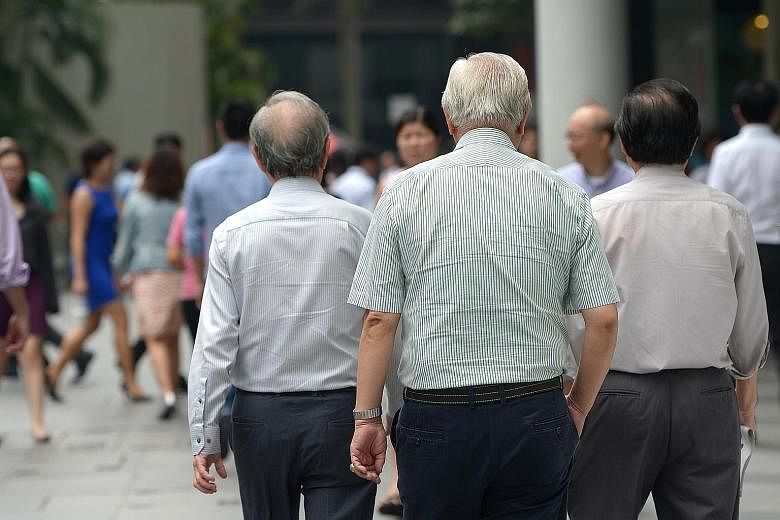Nearly three in 10 Singapore workers expect to receive "a lot less income" in retirement than they do today, according to a new survey. Many workers also expect to rely less on family members for retirement support, according to the survey on retirement attitudes.
This Global Aging Institute and Prudential survey polled 750 household "main earners" aged 20 and above in Singapore, both currently working and retired. It was part of a wider survey across East Asia.
Only about 25 to 30 per cent of the pre-retirement income of most of today's workers will be replaced by Central Provident Fund (CPF) handouts, it said, citing another study. Some 28 per cent of the respondents now working expect to have "a lot less income" in retirement than they do today, more than other surveyed markets except Hong Kong, South Korea and Taiwan.
Nearly 20 per cent of surveyed retirees said they "could not get by at all" without the financial support of their grown children, while 40 per cent said the income they have now is "a lot less" than when they were working.
"While Singaporean workers have higher net financial asset-to-income ratios than workers in most of the other (markets) surveyed, it is doubtful that their personal savings can make up for their inadequate retirement benefits," the survey noted.
Future retirees may also not be able to fall back on their adult children, the report said.
Just 13 per cent of Singapore respondents said that adult children or other family members should be mostly responsible for providing income to retirees.
Some 48 per cent of respondents believe that "retirees themselves, through their own savings" should be mostly responsible for providing retirement income. Just 30 per cent believed that the Government should be mostly responsible.
When contacted on the survey findings, a Ministry of Manpower (MOM) spokesman said that a median Singapore earner entering the workforce in 2012 could receive a retirement income of about 60 to 70 per cent of pre-retirement income under the CPF. This was according to a study done by two NUS professors in 2012. This income replacement rate is within the range recommended by the World Bank and comparable to those seen in OECD countries, he said.
The spokesman also said the Government had implemented CPF-related schemes to encourage Singaporeans to set aside more retirement savings for themselves and their loved ones. It also contributes to the CPF accounts of those who need more.
"CPF is designed to help meet members' basic retirement needs. Individuals who wish to supplement their retirement income can consider other plans provided by the private sector," he added.

